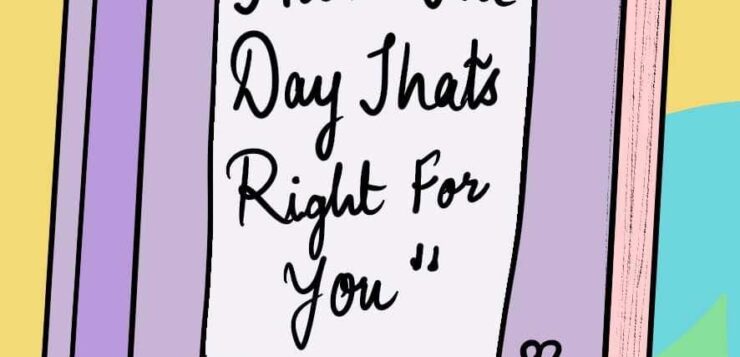I absolutely detest self-help books. And I have a very specific reason: I used to write them for a living.
That’s not to say that I wrote self-help books in the same way as Stephen Covey, Mark Manson, or Rhonda Byrnes; rather, I was employed to read these books in their entirety and write summaries that captured their essence in a few key bullet points for busy readers. Before we go any further, I should clarify that I am NOT against self-improvement; I firmly believe that everyone should make an effort to learn, grow, and improve as best they can throughout the course of their lives. But as much as I love personal growth, I take issue with the path that self-help books provide.
After reading and summarising an overwhelming 1500+ self-help books— many of which are best-sellers and genre titans— I’ve found that, by and large, self-help books are patronising, ableist agents of toxic positivity. At best, most tout such gems of advice as “just think happy thoughts!” or “if you can dream it, you can do it!” giving the impression that they absorbed all their wisdom from inspirational bumper stickers… and then tried to squeeze a whole book out of a one-line platitude.
At worst, books like The Secret assert that those who have cancer brought it on themselves, that victims of natural disasters asked for tsunamis by thinking negative thoughts, and that anyone who is unhappy with their weight should simply “think themselves thin!” By the logic of writers like Rhonda Byrne having a bad day at work is a choice. No matter what you’re dealing with, it’s your own fault for inviting such negative circumstances with your equally negative thoughts.
But never fear! You can turn your whole day upside down by simply smiling! According to Gordon, you should also pretend that your life is a bus and you are the driver; the more you smile, the more fuel you add to your bus! It doesn’t matter if you have the world’s suckiest job, or if everything is going wrong in your day, or if your struggles are due to factors beyond your control. No, it would appear that these details are entirely irrelevant; you can get through anything if you smile all day long and pretend to drive a bus.
Now, to an extent, I can understand where authors like Byrne and Gordon are going with their logic; there’s a lot to be said for the power of positive thinking. Undoubtedly, there’s a certain degree to which your own mentality can affect your attitude and your circumstances; if you tell yourself that you’re a loser and everything is going wrong, you’re likely to go through the day in a bad mood that may impact the outcome of the things you do. By contrast, if you make an effort to tell yourself that you can do it and everything will be okay, you may feel more positive overall.
But that’s pretty much where the power of positive thinking ends. Doing your best, working hard, and trying to keep your spirits up are wonderful things that everybody should do— but those habits can’t change everything. They can’t change the fact that some people have depression and/or physical disabilities that make many daily activities more challenging. They can’t change the fact that people regularly encounter racism, homophobia, and sexism at work. A smile isn’t going to dismantle those things and pretending to “drive your own energy bus” is not the answer to inequality.
But, funnily enough, most self-help authors decline to comment on that perspective. Instead, they seem to find it easier to operate on the assumption that everyone is white, able-bodied, and neurotypical, that no one encounters anything more challenging than a slight lack of motivation. But, quite frankly, many of the metaphors and analogies touted by these books strike me as so infantilising and overly simplistic that they also insult the intelligence of the whitest, most able, and most neurotypical reader who could ever pick up a book!
Thus, I feel that when you add ableism and insulting self-righteousness into a genre that is already devoid of inclusion and sensitivity, many self-help books ultimately feel as tone-deaf as your neighbourhood Karen who tells you to “stop being so anxious” or “just get some fresh air if you’re depressed.” Advice like this fails to consider that it’s not that easy for everyone and that an able-bodied, neurotypical perspective is not always the empowering motivational call to action you think it is. (Molly-Mae, anyone?)
I’m all for personal growth and evolution. But I believe that personal improvement should be approached with a focus that’s uniquely tailored to you as an individual, with a plan that incorporates an awareness of your strengths, challenges, and goals. Without that personalised focus, telling someone with depression to “think happy thoughts” is just toxic positivity. Because, in reality, we don’t all have the same 24 hours in a day; someone with chronic fatigue is just not able to wake up and “fuel their own energy bus” in the hope that positivity will overcome their medical condition.
I don’t hate personal growth and I don’t want to disparage anyone’s attempt at becoming the happiest, healthiest version of themselves. But I do think we need to be mindful about the way we approach that growth. And toxic self-help culture is not the way to do it.




